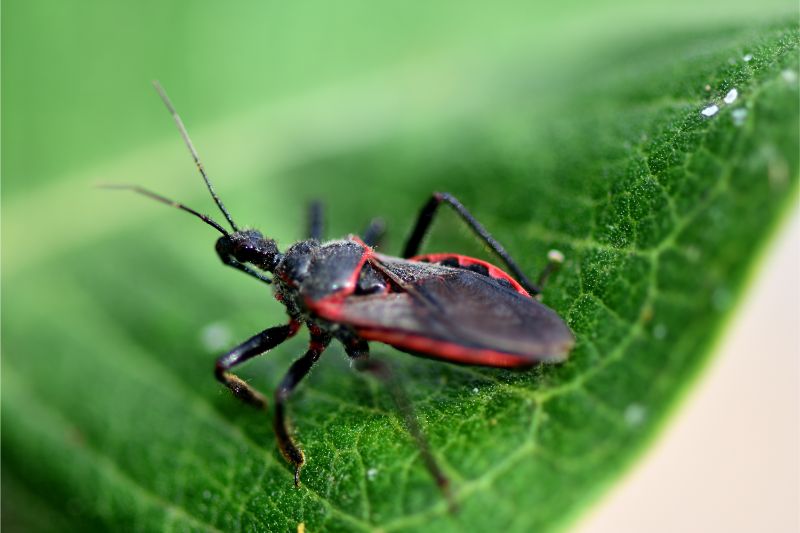Blog
Kiss of Death: Chagas Disease in Dogs

Texans are no strangers to bugs. Big, small, and in between, they are a part of life here in the south. Many of them are harmless, but others can be the bearers of serious trouble.
Kissing, or assassin, bugs are one of those critters that we want pet owners to worry about. The bite of this insect can carry an infection that is one to avoid. Chagas Disease in dogs is something that Ten West Bird & Animal Hospital wants Texan pet owners should know about.
Chagas Disease in Dogs
Chagas Disease in dogs is a big problem caused by a little bug. The bite from the kissing bug may be painful, but in and of itself is no big deal. Infection happens when one of these little critters is itself infected with a tiny protozoan parasite called Trypanosoma cruzi.
Chagas Disease is widespread in both South and Central America, but occasionally seen in the southern part of the United States, with Texas reigning champion for the most diagnosed cases.
Many wild animals, including raccoons, opossums, and armadillos are chronically infected with Trypanosoma, serving as reservoirs for the disease. Chagas is carried through the kissing bug vector from animal to animal.
The infectious organism is carried in the feces of the insect and can be introduced into a new host when the feces enter a bite wound or contact the mucous membranes such as during ingestion. The disease can also be contracted by eating an infected host animal.
Once the organism enters a pet, it spends about five days multiplying before moving into the blood and localizing in the cells of major organs, most often the heart and brain about two weeks later.
Signs of infection can vary, with the acute infection often progressing to chronic disease. Symptoms of infection with Chagas Disease in dogs include:
- Lethargy or depression
- Fever
- Weakness
- Diarrhea
- Neurological symptoms
- Enlarged lymph nodes
- Heart failure
- Increased heart rate
In the worst situations, sudden death can occur. Cats can also be infected with Chagas, but to date we have not diagnosed a cat infection in the United States.
Chagas can also affect people, making it even more important to avoid in our pet population. Thankfully, no known cases of transmission directly from dog to human have been documented.
We have limited means to treat Chagas Disease in dogs, and many infected patients succumb to the effects of the illness. When the disease progresses to the chronic form it is almost always fatal.
Protecting Your Pet
When a disease has such a poor prognosis and implications for people, we must take it seriously. Protecting your pet from Chagas is extremely important. So what is a pet owner to do?
Here are some effective steps you can take to protect your family from Chagas Disease.
- Use good insect control measures on your property
- Keep pets indoors at night, when insects are most active
- Prevent contact with wild animals to reduce infection risks
- Keep any bedding or dog houses insect-free to prevent exposure to insect feces
- Do not allow dogs to ingest insects or rodents which could be carrying the disease
- Do not allow infected females to have litters, as they may pass the disease to their offspring
While you can’t totally eliminate the chance that your pet could encounter Chagas Disease, good insect control is a pretty standard part of life in the South. Protecting yourself and your pets from disease-carrying vectors such as mosquitoes, ticks, and kissing bugs is the best way to prevent several serious diseases.
As your partners in pet care, the professionals at Ten West Bird & Animal Hospital are here to help, no matter the concern with your non-human family. Please call us right away any time you think your pet may be sick or with any questions at all.
